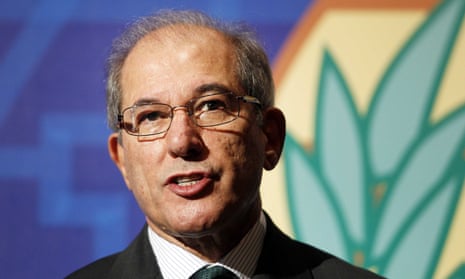The international chemical weapons watchdog has amended a claim made by its director general that as much as 50-100 grams of liquid nerve agent was used in the attack on the former Russian double agent Sergei Skripal in Salisbury.
On Thursday the head of the Organisation for the Prohibition of Chemical Weapons, Ahmet Üzümcü, said the amount of novichok – a military-grade nerve agent developed by the Soviet Union – used in the attack on 4 March was significantly more than needed for research purposes and indicated it was likely to have been created for use as a weapon.
He told the New York Times: “That quantity – a range from slightly less than a quarter-cup to a half-cup of liquid – is significantly larger than the amount that would be created in a laboratory for research purposes, meaning that it was almost certainly created for use as a weapon.”
Within hours of the report, however, startled chemical weapons experts were challenging the figure, insisting a miscommunication had occurred. A statement from the OPCW on Friday said the organisation “would not be able to estimate or determine the amount of the nerve agent that was used”.
It added: “The quantity should nonetheless probably be characterised in milligrams.”
It is not clear how Üzümcü made his error.
Maria Zakharova, the Russian foreign ministry spokeswoman, had reacted with incredulity to the the initial OPCW claim, saying: “Üzümcü has made a sensational statement that 50-100g of some substance was allegedly used to poison the Skripals.
“According to expert estimations, 50-100g of a toxic agent such as the one Great Britain has been referring to would be enough to poison not just two people but everyone in the surrounding neighbourhood. However, the two people in question managed to survive and recover, the British authorities say.”
In the interview Üzümcü also described new measures to monitor production of the nerve agent. He said countries that are signatories to the chemical weapons convention, such as Russia, the US and the UK, would be required to declare production or stockpiling of the agent.
However, he said countries producing the chemical for research purposes would produce about a tenth the amount used in the attack.
